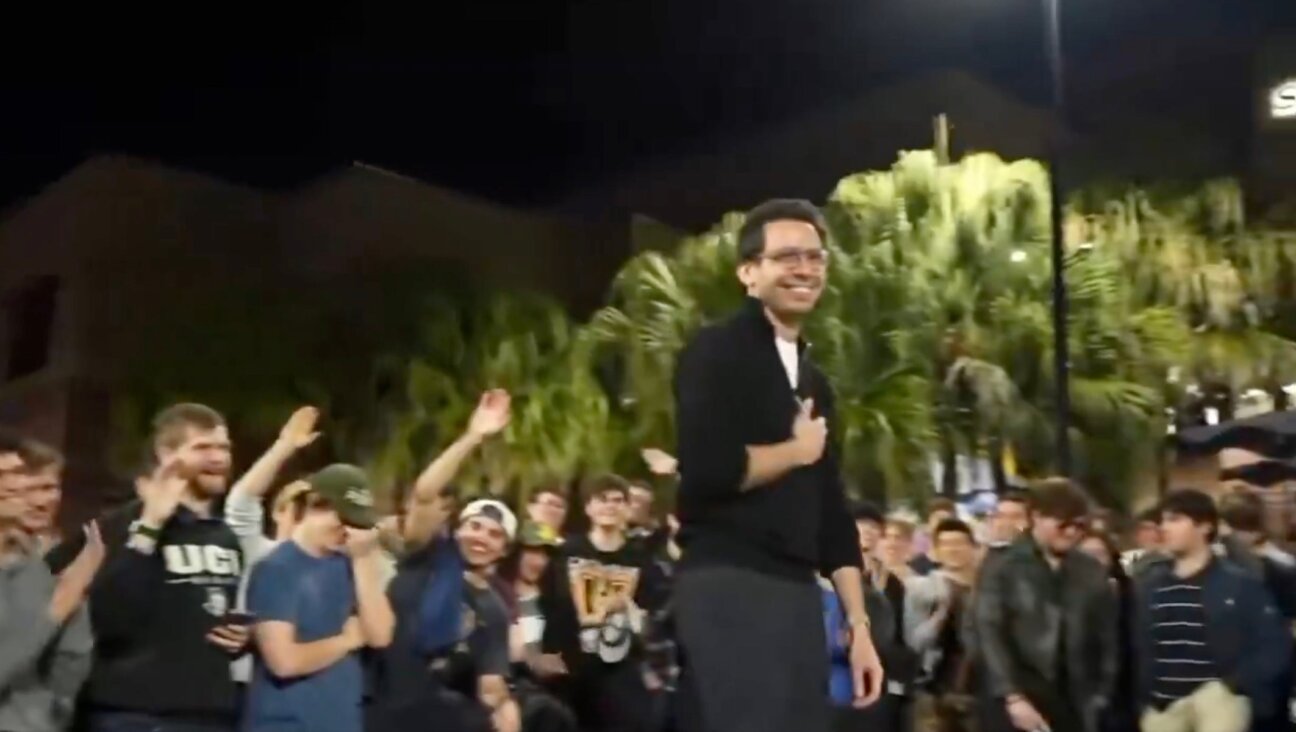Saving Our Money for Madoff?
Of all the shocks of the Bernie Madoff heist, perhaps none was more stunning than the list of victims. Among them were several Jewish foundations and many of our community’s most prominent nonprofits. The losses were staggering, and in some cases crippling.
Yet the real Madoff scandal isn’t the losses; it’s that our community was sitting on vast pools of accumulated wealth, much of it used to little effect. Madoff had his secrets to keep, but so, in fact, did many foundations and endowments. They had money to spend, and they didn’t spend it. Now it’s gone.
Everywhere in the Jewish community we hear of crises — in Jewish literacy and continuity, in a lack of social action and awareness, in a failure of the synagogue and the rabbinate, and so on. Yet all this time, there were individual donors and philanthropy executives sitting on large pools of money that could theoretically have been used to help address many of our biggest concerns. As a community, we now live so much for perpetuity that we fail to deal with the present.
I used to think that the rise of Jewish endowments and foundations represented the pinnacle of our life here in America — financial success, combined with organizational stability and careful foresight. Now, it appears, we are simply incompetent as a community, having so badly matched what we have with what we need. Either we refuse to deploy our assets to our needs, or our needs, as we define them, are in fact not that pressing. Either way, it is a stunning indictment.
Thanks to tax incentives that encourage their growth, philanthropic foundations have ballooned over the past decade. According to a report from New York’s Foundation Center, foundation assets doubled from $330 billion in 1997 to $669 billion only ten years later. In their 2007 monograph “A Study of Jewish Foundations,” Gary Tobin and Aryeh Weinberg note that Jewish foundations have experienced similarly rapid growth. (Full disclosure: Tobin has been a client of mine.)
Most foundations, however, do not spend the bulk of their money, instead storing it away, granting only a small portion to charities each year. “Most foundations with larger assets give away about 5%, the minimum required by federal law, which most foundations see as a ceiling, not a floor,” Tobin and Weinberg write. Similarly, endowments — which also expanded with flush economic times — “rarely withdraw more than 5 percent or 6 percent of their assets per year,” as The Chronicle of Philanthropy reported.
True, endowments have their value. James Tisch, who has previously served as president of the UJA-Federation of New York, defends them strongly. “Endowments allow institutions to survive in bad years,” he told me. “Most organizations don’t have nearly enough after their annual campaigns to make it.” I don’t disagree. There are many institutions that would close if not for their endowments, which most thankfully diversified.
But having an endowment of large enough size to do what Tisch describes is a double-edged sword. It does let you out of the annual campaign rat race. But it also removes your sense of urgency.
If Jewish donors were truly ambitious, they would demand philanthropic extinction. They would give money to organizations only if endowment funds were also put to work. They would launch foundations with a built-in ticking clock: Perform, or else. In short, they would operate as if Bernie Madoff were managing their money, and that one day it would all be gone anyway.
That model would involve more risk, more spending, more activity and certainly less for future generations. It would be akin to taking away trust funds from the grandchildren so they actually have to work for a living.
Fine. Jewish donors know that you don’t gain reward without some measure of risk. That’s true in philanthropy just as it is in business. Yet many Jewish donors still give to the same old causes, the same old institutions, in the same old ways. No wonder so many got burned by Madoff. They followed the crowd on everything.
In Judaism, every 50th year is considered a Jubilee year, when we are commanded to return land to its original owner and to let our fields lie fallow. Why not transpose that commandment to our endowments and foundations? Let us resolve: Every 50 years, our community’s stored wealth must be spent, and its charitable assets depleted. After that, we can begin the work anew — yes, with fewer assets, but with a greater capacity for creativity and success.
Noam Neusner is the principal of Neusner Communications, LLC. He served as President Bush’s principal economic and domestic policy speech writer from 2002 to 2004.
















